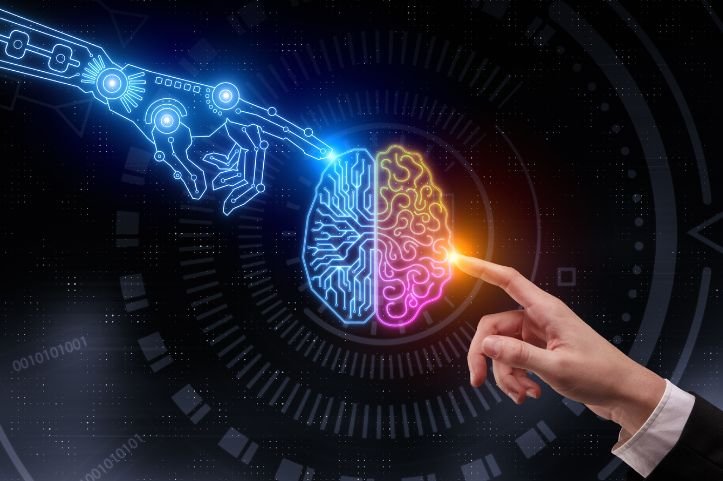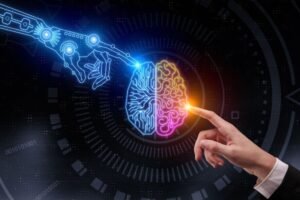
Once considered a futuristic notion, Artificial Intelligence (AI) is now a vital part of our everyday lives.
From the moment we wake up to the time we go to bed, AI technologies enhance our experiences, streamline our tasks, and provide solutions to complex problems.
This article explores the multifaceted impact of AI on everyday life, highlighting its applications, benefits, and the transformative changes it brings to various sectors.
1. AI in Personal Assistants and Smart Devices
Virtual Assistants
Virtual assistants like Amazon’s Alexa, Apple’s Siri, Google Assistant, and Microsoft’s Cortana have become household staples.
These AI-powered tools help manage schedules, set reminders, answer queries, control smart home devices, and even entertain users with music and stories.
By understanding natural language, these assistants provide personalized experiences, making everyday tasks more convenient.
Smart Home Automation
AI-driven smart home devices enhance comfort, security, and energy efficiency. Thermostats like Nest learn users’ temperature preferences and adjust settings automatically to save energy.
Smart lighting systems adjust brightness based on natural light and occupancy, while AI-powered security cameras monitor homes in real-time, recognizing faces and detecting unusual activities to alert homeowners promptly.
2. AI in Healthcare
Diagnostic Tools
AI algorithms analyze medical data with remarkable accuracy, assisting in the early detection of diseases.
Tools like IBM Watson Health and Google’s DeepMind can process vast amounts of medical literature and patient data to identify patterns that may indicate conditions such as cancer, diabetes, and heart disease, enabling timely interventions.
Personalized Medicine
AI enables the development of personalized treatment plans tailored to individual genetic profiles.
By analyzing genetic information alongside lifestyle and environmental factors, AI helps healthcare providers create customized therapies that maximize efficacy and minimize side effects, improving patient outcomes.
Robotic Surgery
Robotic systems like The da Vinci Surgical System enhance precision in surgical procedures.
AI assists surgeons by providing real-time data, improving maneuverability, and reducing the risk of human error.
This leads to shorter recovery times, reduced complications, and better overall surgical outcomes.
3. AI in Transportation
Autonomous Vehicles
Self-driving cars from companies like Tesla, Waymo, and Uber are revolutionizing transportation.
AI systems process data from sensors and cameras to navigate roads, recognize traffic signals, and avoid obstacles.
Autonomous vehicles promise to reduce accidents, decrease traffic congestion, and provide mobility solutions for those unable to drive.
Traffic Management
AI optimizes traffic flow in cities by analyzing real-time data from cameras, sensors, and GPS devices.
Smart traffic lights adjust their timing based on current traffic conditions, reducing congestion and minimizing travel times.
Additionally, AI-powered predictive models help city planners design better infrastructure to accommodate growing populations.
4. AI in Communication and Social Interaction
Language Translation
AI-powered translation tools like Google Translate and Microsoft Translator break down language barriers, enabling seamless communication across different languages.
These tools utilize deep learning to provide accurate translations in real-time, facilitating international collaboration and cultural exchange.
Social Media Algorithms
Social media platforms like Facebook, Instagram, and Twitter use AI to curate personalized content feeds.
By analyzing user behavior, preferences, and interactions, AI algorithms deliver relevant posts, advertisements, and recommendations, enhancing user engagement and satisfaction.
5. AI in Education
Personalized Learning
AI-driven educational platforms like Khan Academy and Coursera offer personalized learning experiences by adapting content to individual student needs.
These systems assess students’ strengths and weaknesses, providing tailored resources and feedback to enhance learning outcomes.
Administrative Automation
AI automates administrative tasks such as grading, scheduling, and enrollment management, allowing educators to focus more on teaching and less on paperwork.
This efficiency improves the overall educational experience for both teachers and students.
6. AI in Finance
Fraud Detection
AI systems analyze transaction patterns to detect and prevent fraudulent activities. By identifying anomalies and suspicious behavior in real-time, AI helps financial institutions protect customers’ assets and maintain trust.
Investment Strategies
Robo-advisors like Betterment and Wealthfront use AI to provide personalized investment advice based on users’ financial goals and risk tolerance.
These platforms offer automated portfolio management, making investment strategies more accessible and affordable for a broader audience.
7. AI in Entertainment and Media
Content Recommendation
Streaming services like Netflix, Spotify, and YouTube leverage AI to recommend content based on users’ viewing and listening habits.
By analyzing preferences and behaviors, AI enhances user satisfaction by delivering personalized entertainment options.
Creative AI
AI tools are increasingly being used in creative industries for generating music, art, and even writing.
Platforms like OpenAI’s GPT-4 assist writers in drafting content, while AI-driven design tools help artists create unique pieces, pushing the boundaries of creativity and innovation.
8. AI in Retail and E-commerce
Personalized Shopping Experiences
AI analyzes customer data to offer personalized product recommendations and targeted advertisements.
E-commerce giants like Amazon utilize AI to enhance the shopping experience, increasing customer satisfaction and driving sales.
Inventory Management
AI optimizes inventory levels by predicting demand patterns and automating restocking processes.
This reduces waste, ensures product availability, and improves overall supply chain efficiency.
9. AI in Environmental Sustainability
Climate Modeling
AI helps in modeling climate change scenarios by analyzing vast amounts of environmental data.
These models aid in predicting future climate patterns, enabling policymakers to make informed decisions to mitigate the effects of climate change.
Conservation Efforts
AI-powered drones and sensors monitor wildlife and environmental conditions, assisting in conservation efforts.
By analyzing data on animal populations and habitat changes, AI supports initiatives to protect endangered species and preserve natural ecosystems.
10. AI in Everyday Convenience
Smart Appliances
AI-integrated appliances like refrigerators, washing machines, and ovens enhance convenience and efficiency in daily chores.
These smart devices learn user habits, optimize energy usage, and provide features like remote control and maintenance alerts.
Voice and Gesture Control
AI enables voice and gesture control for various devices, making interactions more intuitive and hands-free.
From controlling smart TVs to operating home automation systems, AI simplifies the way we interact with technology.
Challenges and Ethical Considerations
While AI offers numerous benefits, it also presents challenges and ethical considerations that need to be addressed:
- Privacy Concerns: The extensive data collection required for AI systems raises privacy issues. Ensuring data security and user consent is crucial to maintaining trust.
- Bias and Fairness: AI algorithms may unintentionally reinforce biases found within the training data. Developing unbiased AI models and ensuring fairness is essential to prevent discrimination.
- Job Displacement: AI-powered automation could result in job displacement across specific industries. Balancing technological advancements with workforce retraining and education is necessary to mitigate this impact.
- Ethical AI Development: Establishing ethical guidelines for AI development and usage ensures that AI technologies are used responsibly and for the benefit of society.
The Future of AI in Everyday Life
The integration of AI into everyday life is only set to deepen, with advancements in machine learning, natural language processing, and robotics driving innovation across all sectors.
Future developments may include:
- Enhanced Human-AI Collaboration: AI systems will work alongside humans, augmenting capabilities and enabling more complex problem-solving.
- Ubiquitous AI Integration: AI will become seamlessly embedded in various aspects of life, from personalized healthcare and education to smart cities and autonomous transportation systems.
- AI for Social Good: AI will play a pivotal role in addressing global challenges such as poverty, disease, and environmental degradation, contributing to sustainable development goals.
Artificial Intelligence is undeniably transforming everyday life, offering unprecedented convenience, efficiency, and innovation.
From personal assistants and smart home devices to healthcare, education, and beyond, AI is enhancing how we live, work, and interact with the world.
While the benefits are substantial, it is imperative to navigate the accompanying challenges with thoughtful policies, ethical considerations, and a commitment to equitable technology development.
As AI continues to evolve, its positive impact on society will depend on our ability to harness its potential responsibly and inclusively.
Embrace the Future with AI!
Understanding and leveraging AI’s capabilities can unlock new opportunities and drive meaningful advancements in every facet of life.
Stay informed, stay adaptive, and harness the power of AI to shape a better tomorrow.




